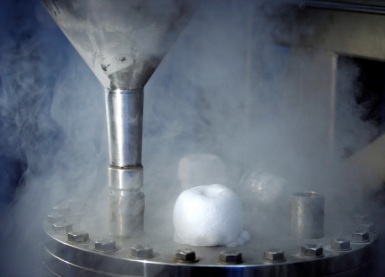
Last week’s court case involving a 14-year-old British girl’s desire to have her body placed in cryogenic suspension after death has raised many questions for the insurance industry, but the issue of freezing body parts is not entirely new.
According to Claire Petts, Head of Healthcare at global law firm Clyde & Co, the freezing of both human sperm and eggs, and sometimes blood, is relatively commonplace and regularly leads to legal issues. Full cryogenic suspension is, in many respects, the ultimate extension of this type of practice.
Claire Petts said: “The freezing of human sperm and eggs is closely regulated in the UK by the Human Tissue Authority and Human Fertilisation and Embryology Authority. This raises the question of whether cryogenics should be regulated. The challenge is that cryogenics is international in nature with British subjects being transported for storage in the US.”
On cryogenics, Claire Petts said: “Cryogenics is a new issue for the UK insurance industry and is raising serious questions, particularly in areas such as medical malpractice and cargo. The bodies are frozen by volunteers, who are unlikely to be insured. Transportation can be tricky and the bodies must enter the US, which could create an issue for public health and the customs authorities. The law will vary in the US from state to state.
“With regard to the long-term storage, questions arise about who owns the body and what happens if the storage and preservation systems fail. There have been reported incidents in which cryogenic storage facilities have failed and the bodies thawed.”
According to the Daily Telegraph, around 20 bodies thawed out and had to be buried after a pioneer company went bust.
The cost of cryogenic preservation varies from facility to facility. One firm quoted £29,000 for whole body storage or £15,000 for just the head. Leading US facility Alcor charges £162,000 for the full body and £65,000 for head-only preservation, and also offers the option of taking out life insurance that will pay out to the company.
Ms Petts said: “As technology advances, we are going to find more ways of preserving parts of the human body. It therefore makes sense for the insurance industry to gain a deeper understanding of the issues this type of preservation entails. This is a practice which is not going away.”

